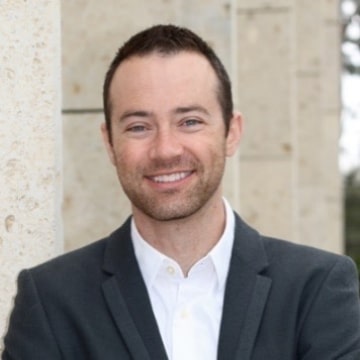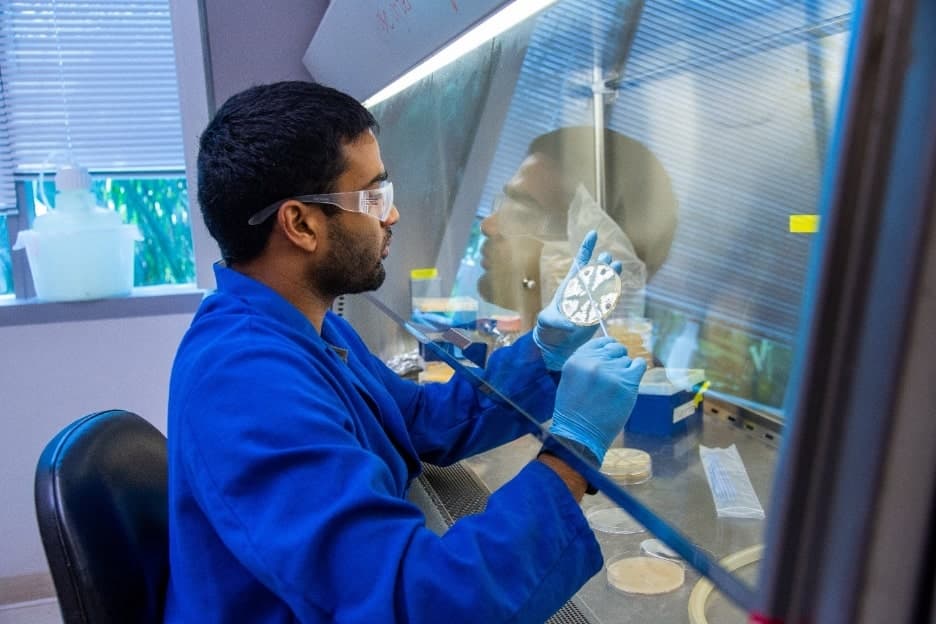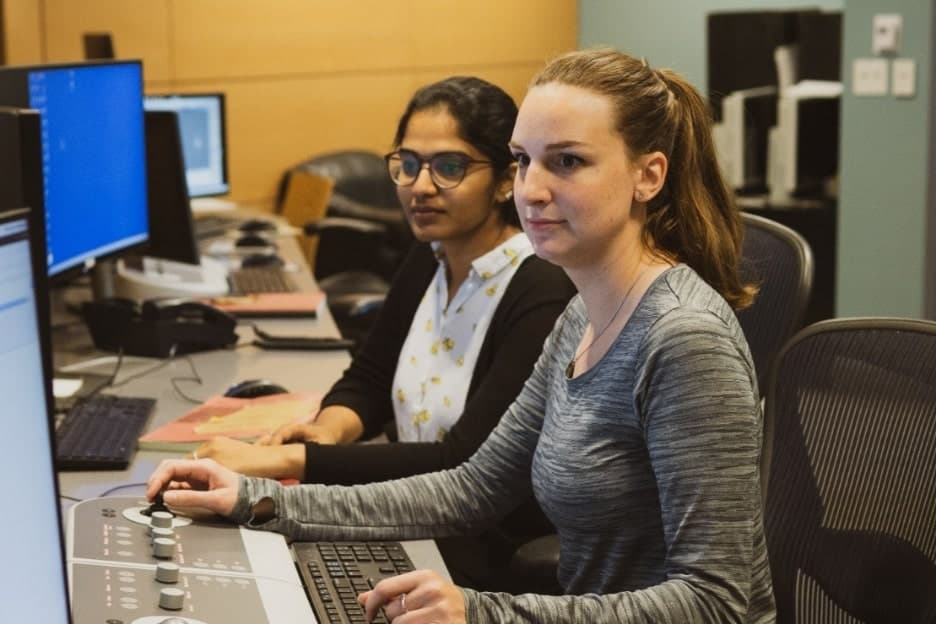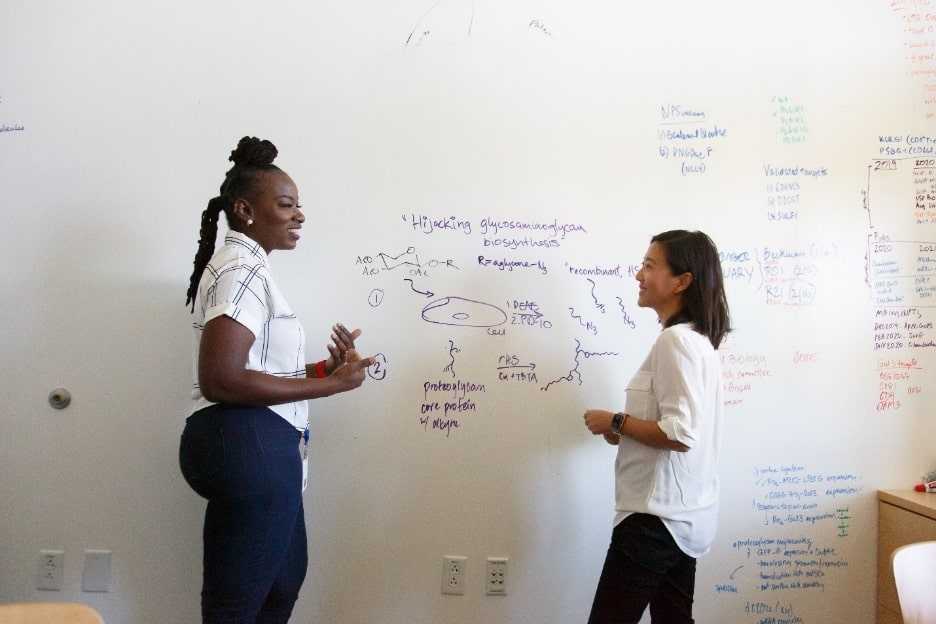Overseas Case: Scripps Research (USA)
Supporting the Future of Science in USA: Professional Mentoring for Young Researchers at Scripps Research
The competitive nature of graduate school and doctoral programs causes early-stage postgraduate and doctoral researchers to lose out on opportunities to explore career development options. Mr. Ryan Wheeler, Sr. Director of Professional Development and Academic Services at Scripps Research, USA, recognized this gap early on, and focused on providing young researchers at Scripps Research with tailored career support, counselling, and guidance.
Abstract
The Scripps Research is one of the most influential research institutions in the world. Ranked first in USA, and second in the world for its impact on science, the institute has two campuses and 2400+ employees, including Nobel laureates.
Using fundamental advancements in biosciences, research at Scripps aims to accelerate creation and delivery of medical breakthroughs, and profoundly improve human wellbeing. Their researchers lead breakthrough studies that address the world’s most pressing health concerns, and their programs mold young graduates into the next generation of leading scientists.
Interviewee’s Bio

Mr. Ryan Wheeler is the Sr. Director of Professional Development and Academic Services at Scripps Research. A master’s in Postsecondary Education Administration from San Diego State University, Mr. Wheeler has been with Scripps for almost 18 years now, actively improving employability among young researchers.
He is an active member of the National Postdoctoral Association and Graduate Career Consortium, and he has given professional development workshops at institutions and professional meetings around the U.S.
An overview: ‘Stepping up’ career development in higher education
With the recent boom in STEM programs, many young students are now opting for masters and other research-oriented courses, hoping to contribute to the field. Starry-eyed graduates and postdocs often have one aim-landing a position in academia.
Sometimes, however, their priorities change. Moreover, there are more postdocs than there are tenure track positions in universities, so not everyone can land these jobs. With the massive growth of STEM fields, other industry-specific options have opened up for these researchers, but they are often either unaware of options beyond academia, or do not have enough support to leverage their education and land these positions. That was what inspired the support program at Scripps Research—so that these young graduates could be provided support and guidance to excel in their careers.

The career services team at Scripps Research guides postdocs through every stage of their career (Image courtesy: Scripps Research)
The career services team at Scripps Research

The team provides individual advising for graduates and postdocs to help them develop their research career (Image courtesy: Shutterstock)
The team helps postdocs, junior researchers, and graduates at Scripps Research figure out their career progression and provides support to them in various forms—whether it is counseling, help in exploring their career options, making professional connections, career development, skill development, or even referrals for mental health support.
While this may seem like a tall order, Mr. Wheeler and his diverse team host a range of services and individual events to help them fulfil this goals.
Apart from hosting regular workshops, symposia, and career advancement seminars, the counsellors on the team also offer individual advising. They meet young researchers and postdocs (either virtually or in-person), answer questions, clarify their future career prospects, and help them explore options for the kind of work they want to do—whether it is academic, industrial, or beyond. They also sponsor mental health and wellness programs for young researchers struggling with any personal problems.
Some of the staff in Scripps Research’s Skaggs Graduate School of Chemical and Biological Sciences is dedicated to educational outreach. They handle and organize the formal high school, or the summer undergraduate research fellowship internship programs. Scripps Research’s faculty too, participates in some of these activities, like career panels for younger students, where they can explore their options after going into science and research.
The status of activities: From workshops to individual counseling

Over 50 career and professional development workshops are offered by the team to the researchers at Scripps Research (Image courtesy: Scripps Research)

The ExCEL Program at Scripps Research offers the graduate researchers and postdocs of the institution a unique chance to explore their field of choice through on-site visits (Image courtesy: Scripps Research)
The team offers about 50 career and professional development workshops through the year, either directly organized or co-planned with other institutes, offices, or organizations at Scripps Research. They have also developed an 8-session career planning course to give PhDs and postdocs tools to explore career paths and make informed decisions about their future goals.
Students who are not interested in academia are encouraged to explore their options. Scripps Research teams up with multiple other organizations and institutes to organize practical and shorter internship-like experiences for these students. Given their course load and academic commitments, postdocs and young researchers are better able to participate in these 1-to-2 day experiences as compared to a full-fledged internship.
One such practically-focused service, called the ExCEL Program—Exploring Careers with Experiential Learning—is run as a mini-experiment. About 5-7 interested researchers go on-site at a local company to ask questions, attend panel discussions, and get a sense of working in a non-academic setting. This is a way for them to engage with an employer and get some practical work experience, performing representative job tasks that would be expected of them in the field.
On a related note, Mr. Wheeler recommends another resource, InterSECT Job Sims, which has a website with different job titles for PhDs. A doctoral researcher can select any of these career paths and participate in a virtual simulation of work tasks and projects typical for that role.
To better integrate education with career training, certain committees have been formed at Scripps Research. Faculty, staff, and researchers are involved in these efforts, and they focus on activities that promote graduate researchers’ and postdocs’ professional and career development.
Scripps Research has integrated professional development into their core competencies for researchers, so they study it like they would any other subject. Several elective auxiliary courses, like science communication, business of biotech, and others, cater to students interested in a non-academic career.
Synchronizing with their curriculum, their one-on-one advising sessions try to look beyond self-reflection and an ideology of there being only one true path for professional fulfilment, to encourage young scientists to explore the variety of career paths available to them.
For graduates focused on academic tenure-track careers, a 2-day academic lab management and leadership symposium is held in conjunction with some of the other institutes in Torrey Pines (where Scripps Research is located). In this symposium, faculty members help young researchers, postdocs, and junior faculty develop the competencies for entering and heading research projects and labs. Budgeting, hiring resources for your lab, conflict management, and many other topics are covered over 7-8 sessions.
The team at Scripps Research also maintains a database of successfully funded fellowships, containing applications that have been granted funding from the National Institutes of Health, or other funding bodies, so that researchers can see what a successful application looks like while applying for their own fellowships and grants.
Graduates and postdocs can also sign up to be part of the council of editors. This presents an opportunity for them to serve as peer editors and give feedback for other Scripps Research students’ and postdocs’ grants and papers.
Individual workshops that help build on career development skills (like interview skills, resume writing, skills required to land an academic position, job applications, et cetera), along with career panels, alumni coffee chats, and other smaller events are regularly held. The team also collaborates with the institute’s International Services Office to offer tailored career development programs for international students and postdocs.
Researchers are encouraged to prepare individual development plans (IDPs), which are career planning tools that they can use to enhance their communication with their advisor, help plan their research activities, and form and keep track of career goals. It increases young researchers’ and postdocs’ efficiency, acts as a performance review and goal setting tool, and helps them progress in their training and get the most out of their training and career. IDPs have emerged as a best practice tool, with many institutions and funding mechanisms requiring them. All graduate students at Scripps Research must do an IDP, and this requirement has been quite helpful.
Conversely, Scripps Research has also introduced some programs for faculty, to help them communicate better with their trainees and implement IDPs in their labs.
The graduate programs’ outreach team also holds events like Science Saturdays, which focus on engaging the staff, young researchers, and postdocs at Scripps Research.
The rewarding reputation of career services at Scripps Research
Due to changing career interests and the disparity in graduates and tenure track positions, the career outcomes of science PhDs have been evolving to encompass a wide array of paths. The career services at Scripps Research try to reduce the stigma of moving out of academia, and help young researchers optimize their transition to a field of their choosing.
The services at Scripps Research are carefully monitored, with a lot of survey data being collected to understand what works. The team also evaluates their one-on-one advising sessions. Young researchers who avail of their services can complete an anonymous feedback form.
So far, the career services at Scripps Research, including the effective career planning course, have received highly positive feedback. Among their more popular offerings are industry job search skills, like interviewing and resume writing, as well as academic job searches (many researchers still do to successfully move into tenure track jobs). Scientific professional development skill-building like grant writing and professional collaborations with other institutes and programs are also popular.
Another feather in Scripps Research’s cap is their international collaborations and accreditations. The Skaggs Graduate School of Chemical and Biological Sciences is world-renowned, with alliances with prestigious institutes like the University of Oxford.
The effectiveness of career services: Have we hit the bull’s eye yet?
Many trainees who have taken advantage of the career support services at Scripps Research have not only moved into tenure track faculty roles at prominent institutions, but have also secured policy-related jobs, medical and scientific writing roles, patent agent jobs, editorial roles at journals, and medical science liaison roles. Industrial scientific jobs with pharmaceutical and biotechnology companies remain the most popular choice.
Mr. Wheeler notes that one of the most rewarding parts of his role is having young researchers write back about their job search successes or leave messages of encouragement, and the team has seen many graduates getting placed in their coveted job or industry.
The future of professional career development services: Looking into crystal ball
Earlier, there were very few institutes with specialized career development resources for graduates and postdocs in the life sciences. Now that number has grown substantially, but there is still scope for further growth.
The future is bright for young researchers in an ever-evolving world. With all the options available, young graduates should educate themselves and make an informed decision about where and under whom they want to train, because parameters like mentorship, resources, support services, policies, and placements in different research institutes and universities greatly vary.
They also need to proactively network with people who are in their area of interest. Utilize the available resources in college efficiently—seek multiple mentors, explore options well, and actively seek out opportunities.
And lastly, young researchers should take care of themselves mentally as well as physically. Scripps Research puts a premium on mental health, with counselors that researchers can talk to, proximity to nature trails for physical exercise, and an active Postdoctoral Association that plans social events like Happy Hours and many other innovative, supportive programs. Joining such clubs helps. Make sure to have a life outside the lab as well and try to maintain a healthy balance.
Also, for those who want to set up similar career support services in their institutions, there is an effective roadmap to go about it.
To start with, identify faculty and administration allies—someone senior who can support and propel ideas forward. Approach administrators and mentors with well-researched scientific data that shows how career and professional development programs have helped young researchers in other universities. Mention elements that funding bodies look at, like IDPs. Compare the policies at the institute with others to show where it can level with competition. All of these, along with networking, will help build a strong base of support.
Encourage faculty or staff to join professional organizations that focus on career development, like the Graduate Career Consortium. These organizations have great resources and highly supportive networks. Also, an additional tip for those starting off—co-organizing events with other institutes helps pool resources and pull off bigger events.
With this sage advice, Scripps Research signs off. We hope this can give an impetus to other institutes and researchers elsewhere to venture out, explore, and have a fulfilling professional career!
Interview date: November 2021
Interview cooperation: Cactus Communications
